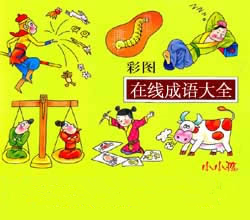初一英语作文:A happy life
初一英语作文:A happy life
Fast cars,beautiful houses and delicious food, we can see these things everywhere in the city. But when you are enjoying these, have you ever thought about other people? Some people don’t use,or even never see these things.
In the world, tens of thousands of people are poor. Only in Africa, there are about 8,000,000 poor people. When you see the number,can you still enjoy your good things?
I once read an article. In a school, there were lots of beautiful tables. The tables were used to have meals. Through the large windows, the students could see green grass and the sun. Wasn’t it wonderful?One day, the schoolmaster went on a trip. On the way, he went to a good restaurant. He ordered a lot of delicious food and sat down to enjoy it. Suddenly, he saw a boy outside the window, and the little boy was looking at the food. He didn’t know the schoolmaster was looking at him, still staring at the food. Finally, the little boy was found by the waiter and turned away.
After the schoolmaster went back to school, he made a decision to replace the beautiful tables with ordinary ones.
This story makes me deeply touched. Many people just enjoy everything but are never satisfied. They ask for materials but never think of others. Compared with the poor people, we are really happy.
In America, Bill Gates has given away most of his money to help others. In China, there are a lot of hope projects. On the Internet, a site collects rice to help poor people. So let’s act to help poor people. I believe that if everyone contributes love, the world will become much more beautiful!
相关作文: 乡下、快乐一起分享、鬼脸PK、爸爸爱我我也爱爸爸、比比谁是大力士、真的混蛋、称赞、喜事连连、对不起陌生人、白色世界标签:初一英语
热门作文成语素材
- 哀感顽艳 原意是指内容凄切,文辞华丽,使愚笨和聪慧的人同样受感动。后多用来指艳情的小说、戏曲、电影中的感人情节。
- 分我杯羹 羹:肉汁。楚、汉相争时,刘邦答项羽的话。比喻从别人那里分享一分利益。
- 暗昧之事 指见不得人的丑事。
- 风不鸣条 和风轻拂,树枝不发出声响。比喻社会安定。
- 安分知足 安于本分,对自己所得到的待遇知道满足。
- 白日见鬼 大白天看见鬼。指工部四曹无事可做,非常清闲。后泛指事情离奇古怪或无中生有。
- 诽誉在俗 诽:指诽谤;誉:赞扬;俗:风气、习惯。诽谤或赞扬在于当时的风习。后来引申指风气、习惯的作用非常大。
- 闭门酣歌 指闭门不出,尽兴饮酒,尽情歌舞。形容沉缅酒色,尽情享受。
- 挨肩擦背 形容人多拥挤。
- 肥马轻裘 裘:皮衣。骑肥壮的马,穿轻暖的皮衣。形容阔绰。
- 飞蛾投火 象蛾子扑火一样。比喻自找死路、自取灭亡。
- 不教而诛 教:教育;诛:处罚,杀死。不警告就处死。指事先不教育人,一犯错误就加以惩罚。
- 不可胜数 胜:尽;计:核算。数也数不过来。形容数量极多。
- 方领矩步 方领:直的衣领;矩步:行步合乎规矩。指古代儒者的服饰和容态。
- 不弃草昧 草昧:原始,未开化。不嫌弃蒙昧无知的人。用作谦词。
